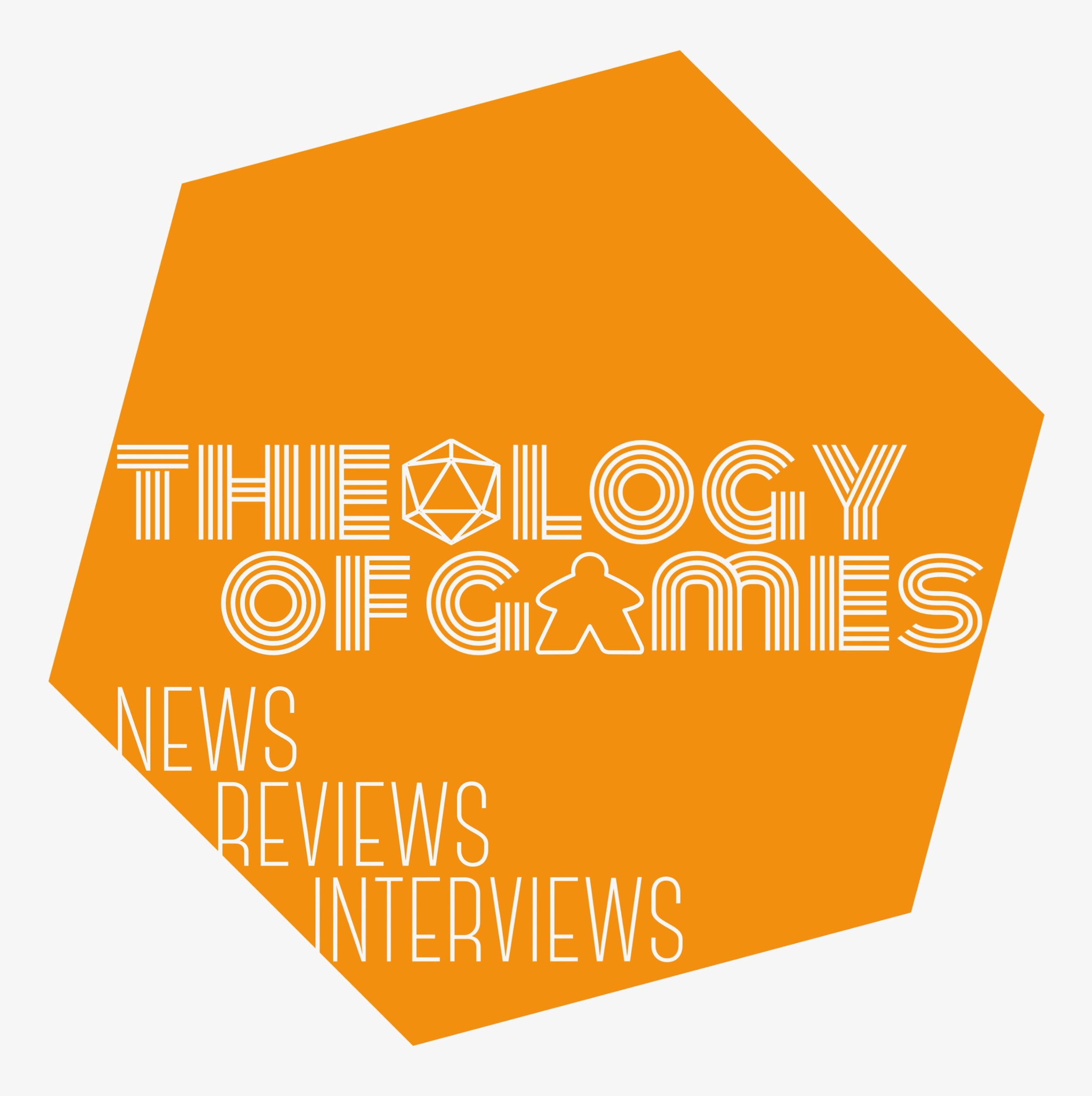Here Comes the Flood--A Double-Take Review of Ra
/Today we're reviewing Ra, a classic auction and set-collection game from the great designer Reiner Knizia. It's been in and out of print, but it's back in print from Windrider Games. So is Ra a monument to game design, or should you avoid this like a plague? Let's find out.
The Gameplay
You'll start by divvying out Sun tiles--specific lots of tiles depending on players. The tiles range in value from 1 to 13, but it's all balanced because...well, it's Reiner Knizia. These suns are the game's currency. Then everyone takes 10 VPs from the supply, and the person with the highest-valued Sun tile begins.
The game is played over 3 Epochs. And Epoch ends when you've pulled enough Ra tiles from the bag to fill the Ra track. On a turn, a player can do one of three things.
- Draw a tile from the bag and add it to the track. If it's a Ra tile, you add it to the Ra track and trigger an automatic auction. (Unless placing that Ra tile fills the Ra track, and then that epoch is immediately over.) If it's any other tile, it just goes on the main track.
- Use one or more of your God tiles you've received in previous auctions to snag tiles out on the track.
- Call an auction. This is handled exactly like an automatic Ra auction, except if no one bids, you have to use one of your Sun tiles to take that lot of tiles.
Whenever there's an auction, the person who called it (or drew the Ra tile) grabs the Ra statue and there's an auction starting with the player to the left of the person holding the Ra statue. Each person puts forward one of his or her remaining Sun tiles or passes. It goes around and back to the Ra-statue person, who gets last bid. If the auction was triggered from a Ra tile draw, then no one has to bid, and you just move along to the next person's turn. If the person called an auction, then if no one else bid, that person must take that lot with a Sun tile.
There are many different types of tiles.
- God and Gold tiles give you points at the end of the Epoch--or you can use a God tile to swipe a tile on the main track.
- Civilization tiles give you points for each different one you have--and if you have none, you lose 5 points.
- Nile and Flood tiles are worth one point each, but ONLY if you actually have a Flood tile. Otherwise, Nile tiles are worthless.
- Whoever has the most Pharaoh tiles gets 5 points, and whoever has the fewest loses 2 points.
- Monuments give you different points depending on how many you collect. There are different numbers for getting many of one type, or many different types.
- Ra tiles trigger auctions and fill up the Ra track to end the epoch.
- Disaster tiles force you to destroy any of the corresponding tiles you might have.
Once someone has spent all of his Sun tiles, he's done for the Epoch. When the Epoch ends you score some tiles and get rid of them, score others and keep them, and some you only score at the end of the game. After the third Epoch you add up the points (and whoever has the highest total of Sun tile values gets 5 points and whoever has the lowest loses 5 points). Most points wins!
The Verdict
Firestone--Ra was designed by the prolific Reiner Knizia. It came out in 1999, part of a span of ~15 years when Knizia was designing LOTS and lots of games--many of which are still classics. It was the very first of publisher Alea's essential Big Box games, and it's often considered part of Knizia's Auction Trilogy, which also includes Medici and Modern Art. Ra has always been one of my Top 3 Knizia games. The mix of set collection, auctions, and push-your-luck is practically perfect. I would, however, suggest only playing this with 3--maybe 4--people. With 5 players there's just too much chaos and lack of control.
Jeremiah--I don't have the long history with this game that Firestone does. So I can't really draw many comparisons to previous printings. But what I can say is that this is a great game for gamers and non-gamers alike: a streamlined design, with little down-time and lots of interaction!
Firestone--The auction. THE AUCTION! You're bidding for lots, but you can see exactly what people have. Having all high tiles isn't necessarily good! Because people can bid on a lot with a low tile, and force you to take a lot with a high tile. Or you can choose not to. It's brilliant. So many nuances.
And then there's the push-your-luck aspect. First, when there's only one person left in the action, you're often tempted to keep drawing tiles--but you might end the epoch by drawing a Ra tile. (At least once a game there's a chant started by the people not left in the Epoch: "Ra! Ra! Ra!" But pushing your luck can also bring out a Disaster tile, which means you could make a great lot suddenly crappy. Or one person might not care about a Disaster, so that lot is still great for her. There's no dead weight in the tiles. Each one is potentially great for someone, depending on the situation.
Jeremiah--I think my favorite part about the auction is that you know what everyone else's bidding capacity is. Instead of using money or VPs, there's a set amount of bidding "currency" in the game and it changes hands as players win auctions. Sometimes it's worth taking a Disaster tile just to get that 13 or 14 value Sun tile! I love that extra layer!
Firestone--Here's the bad news. This is utterly subjective, but I much prefer the art from the old editions. The artwork in this new Windrider version seems...muddy. It's hard to differentiate colors and specifics--especially from across the table. The older-edition tiles were clear, vibrant, and easy-to-discern. BUT, and I can't stress this enough: If you don't own Ra, do NOT let the artwork keep you from owning this classic.
Jeremiah--Like I said, I don't have the old edition, so I can't compare it. I will say that the artwork wasn't super intuitive. It's gorgeous, but it's not highly functional. We made the mistake of not looking at all the tiles before they went into the bag, so there was a bit of a confusion as to what was what, and we had to reference the rule book well into the second epoch.
Firestone--Not only is Ra a classic gamers' game, but I've had remarkable success using Ra with nongamers. First, turns go very quickly. You have one of three options, so you never have too much to think about. You can see exactly what is available. You can see exactly what sets you have, and what others have. You can see just what Sun tiles you have and others have. All of this known information puts nongamers at ease. They don't feel like they're missing something. Sure, they may still evaluate a lot poorly, or not know a good time to Invoke Ra, but they still have a blast, and it can definitely act as a gateway game. And that's remarkable for a bidding/auction game!
Jeremiah--Agreed, this is definitely a game that has been plopped right on the top of my gateway games list. The tile types and scoring are the only elements that will slow down the learning curve. If you know that going in, you can teach the game quickly and efficiently.
If there's something that was a turn off for me it was the thematic element of taking an action to "Invoke Ra." I'm not real a fan of invoking pagan gods while placing a graven image of said god (very well produced I might add) in front of me... We came up with ways around it: "I'm going Ra!" Or "It's time to Ra it up!" The gameplay is great and could honestly translate into nearly any theme. In fact the auction aspect felt a little out of place in the Egyptian setting...
Firestone--We just say we're "calling Ra." Which I take to mean calling for a Ra auction, and not in any way invoking a pagan god. I can see how someone would be uncomfortable playing a game about Egyptian gods, but it's been no problem for me.
Firestone's Final Verdict--Here's the bottom line: Ra is one of the best 3-player games ever. It might be THE best ever. It's a classic that deserves the title--and it plays in less than an hour! If you already own Ra, there's no reason to buy this new version. If you don't own Ra, BUY THIS GAME.
Jeremiah's Final Verdict--Ra is worth the hype! It's a great game, with a streamlined, elegant design! There's a ton of interaction, great strategic auctions, and just enough luck in it to keep replayability high!! You should have this game in your collection!
Theology of Games would like to thank Asmodee for providing review copies of Ra. This in no way affected our opinions of the game.
Have you played Ra? What are your thoughts? Lets us know in the comments. And thanks for reading!



















